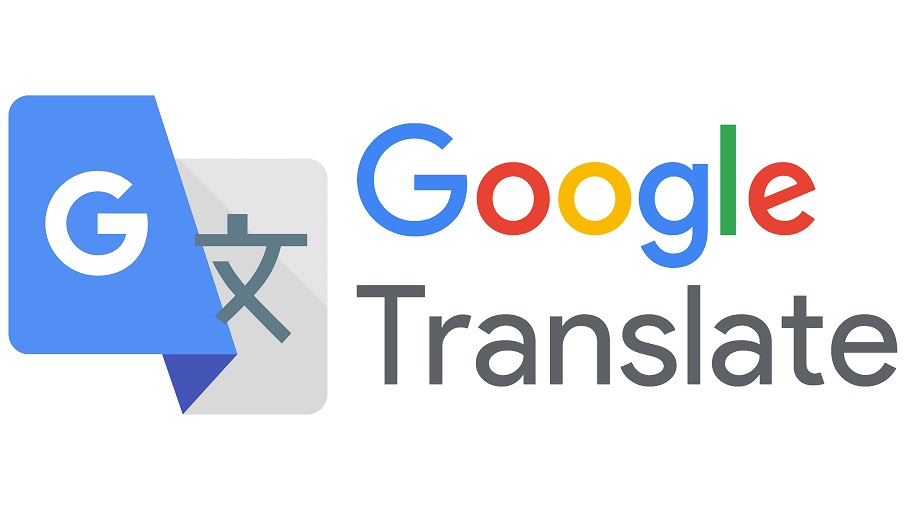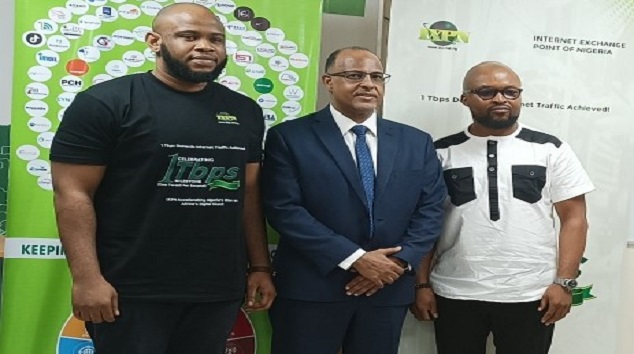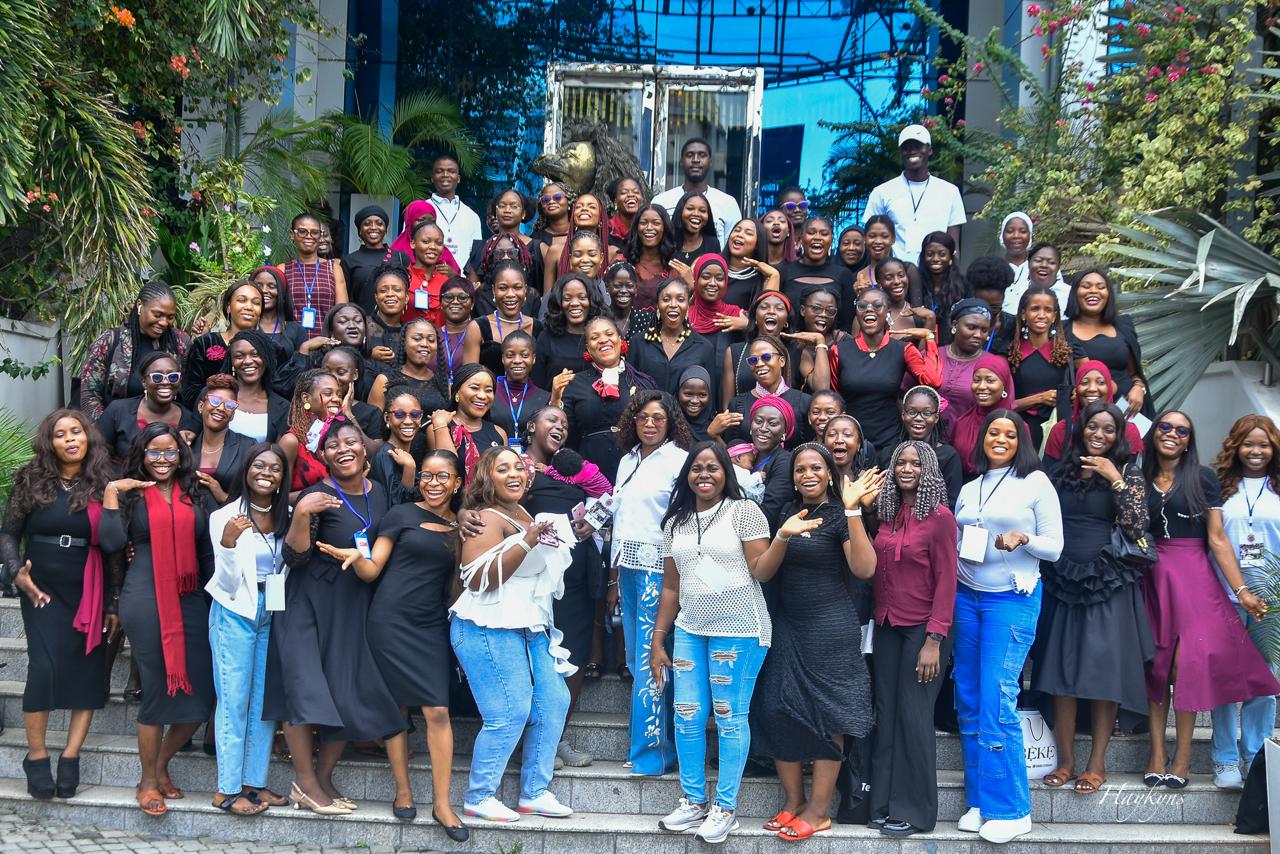Telecom
Google Translate Adds 110 More New Languages to its Platform

Google has announced a major expansion of Google Translate, adding 110 new languages to the platform. This update, part of Google’s 1,000 Languages Initiative, which uses AI models to support the 1,000 most spoken languages around the world, represents a significant step towards breaking down language barriers and fostering communication across diverse cultures.

The new inclusions include eight languages from across Africa, which now join Nigerian languages Hausa, Igbo, Yoruba, Fulani, Kanuri, and Tiv, which were already supported by Google Translate.
Taiwo Kola-Ogunlade, Communications and Public Affairs Manager for West Africa at Google, highlighted the importance of this initiative: “Our mission is to enable everyone, everywhere, to understand the world and express themselves across languages. With the addition of these 110 new languages, including many from Africa, we’re opening up new opportunities for over half a billion people to connect and communicate.”
Africa, with its rich linguistic diversity, is a key focus of this expansion. The addition of numerous African languages underscores Google’s commitment to supporting underrepresented languages and amplifying voices from across the continent.
Kola-Ogunlade further explained the complexities involved in language selection: “A lot of consideration goes into new language additions for Google Translate, ranging from which languages to include to the use of specific spellings.
“Many languages do not have a single, standard form, so learning the specific dialect that is spoken the most in an area is more feasible. Our approach has been to prioritise the most commonly used varieties of each language.”
The latest expansion utilises the PaLM 2 large language model, following the addition of 24 languages in 2022 using Zero-Shot Machine Translation. This technology enables Translate to more efficiently learn languages that are closely related to one another or have various distinct dialects. Google collaborated extensively with native speakers to ensure accuracy and prioritise the most commonly used varieties of each language.
The 110 new languages represent over 614 million speakers worldwide, covering around 8% of the world’s population. This includes major world languages with over 100 million speakers, languages spoken by small Indigenous communities, and languages undergoing revitalization efforts.
Key African Languages Now Supported by Google Translate:
Middle Africa: Kikongo
Eastern Africa: Luo, Swati, Venda
Western Africa: Fon, Wolof
Southern Africa: Swati, Ndebele
Notably, this update marks Google’s largest expansion of African languages to date, including:
Afar is a tonal language spoken in Djibouti, Eritrea and Ethiopia. Of all the languages in this launch, Afar had the most volunteer community contributions.
Cantonese is one of the most requested languages for Google Translate. Because Cantonese often overlaps with Mandarin in writing, it’s tricky to find data and train models.
Manx is the Celtic language of the Isle of Man. It almost went extinct with the death of its last native speaker in 1974. But thanks to an island-wide revival movement, there are now thousands of speakers.
NKo is a standardised form of the West African Manding languages that unifies many dialects into a common language. Its unique alphabet was invented in 1949, and it has an active research community that develops resources and technology for it today.
Punjabi (Shahmukhi) is the variety of Punjabi written in Perso-Arabic script (Shahmukhi), and is the most spoken language in Pakistan.
Tamazight (Amazigh) is a Berber language spoken across North Africa. Although there are many dialects, the written form is generally mutually understandable. It’s written in Latin script and Tifinagh script, both of which Google Translate supports.
Tok Pisin is an English-based creole and the lingua franca of Papua New Guinea. If you speak English, try translating into Tok Pisin — you might be able to make out the meaning!
Telecom
Nigeria Hits 1 Terabit Internet Traffic Milestone

IXPN, Nigeria’s leading Internet Exchange Point, is proud to announce a landmark achievement: crossing 1 Terabit per second (1Tbps) in aggregate peak domestic internet traffic for the first time.

This milestone signifies a major leap forward in developing Nigeria’s internet infrastructure and underscores the critical role of local internet infrastructure in driving economic growth, innovation, and connectivity for millions of Nigerians.
“This milestone is more than just a number. It’s a symbol of Nigeria’s digital maturity and our united strides towards becoming a tech-driven nation. By keeping local internet traffic within Nigeria, we reduce costs, improve speeds, and ensure our digital economy thrives with homegrown infrastructure.” said Muhammed Rudman the CEO of IXPN.
“Achieving 1 Tbps is a significant victory for Nigeria’s ICT ecosystem, a breakthrough for domestic internet traffic. It serves as a catalyst, enabling millions of Nigerians to enjoy faster, more affordable, and resilient internet connectivity.”

1 Terabit per second is a game-changer for Africa’s most populous country. To put it in perspective:
- Mega Video Calls: A speed of 1 Tbps can support over 1 million concurrent Zoom calls, allowing students, entrepreneurs, and professionals to connect and drive Nigeria’s digital revolution.
- Streaming Frenzy: With 1 Tbps, more than 200,000 people can stream HD Nollywood films or movies on Netflix simultaneously without any buffering or interruptions.
- Data Superpower: This speed enables the transfer of the entire contents of 50,000 smartphones—including photos, apps, and videos—in just one second.
For Nigeria, hitting this milestone means reducing reliance on international bandwidth, decreasing latency for local services, and strengthening our position as Africa’s digital heartbeat. This milestone is a testament to the power of collaboration, innovation, and the relentless pursuit of a faster, more connected Nigeria.
This accomplishment goes beyond technical advancements; it has significant economic implications. By encouraging local traffic exchange, IXPN reduces dependency on international bandwidth, leading to:
- Significant Cost Savings: By utilizing local data exchange, Nigerian businesses can save millions of dollars annually on international bandwidth fees.
- Enhanced Speed and Connectivity: With reduced latency, users experience smoother streaming, gaming, and real-time services, enhancing their overall online experience.
- Increased Resilience: Strengthening Nigeria’s internet infrastructure protects against global disruptions, ensuring consistent access to vital services such as healthcare and education.
- Improved Efficiency: Optimizes digital services like fintech, edtech, e-commerce, and e-health, propelling innovation and growth in these sectors.
Surveys conducted among IXPN members over the years have shown a growing percentage of local internet traffic in Nigeria. A recent report indicates that some connected members can localize or domesticate up to 70% of their internet traffic through IXPN.
“As more content providers, ISPs, banks, and public institutions localize their traffic through the IXP, end users benefit directly,” added Raphael Iloka (Marketing Manager). “We’re not just routing data — we’re building the foundation for Nigeria’s digital economy.”
The 1 Tbps peak highlights the remarkable impact of collaboration among all stakeholders. This milestone is a significant achievement not only for IXPN, but for the entire ICT ecosystem. IXPN deeply appreciates the vital contributions of all stakeholders involved.
To our Members and Partners: Your trust and participation have been essential to our growth. Together, we have established a hub where networks can interconnect, innovate, and thrive.
To the Government and Regulators: We express our sincere appreciation to the Nigerian Communications Commission (NCC) for all its support over the years and its vision of a digitally inclusive Nigeria.
To our Team: We extend our gratitude to our engineers, network administrators, and all other staff who work tirelessly behind the scenes to push boundaries.
To the Global Community: We are grateful to partner organizations like the Internet Society (ISOC). Your support and advocacy in domestic peering empower us all.
Reaching 1 Tbps is just the beginning. As data demands skyrocket with AI, IoT, 5G, and immersive technologies, IXPN is committed to staying ahead of the curve. Here’s how:
- Scaling Infrastructure: We are investing in advanced hardware and software to support multi-terabit capacities.
- Enhancing Resilience: We are strengthening our network to ensure uptime, security, and adaptability in an ever-changing digital landscape.
- Empowering Underserved Communities: We aim to expand our reach to rural areas, bridging the digital divide, and supporting agritech, edtech, and telehealth.
- Strengthening Africa’s Digital Sovereignty: Partnering with regional IXPs to keep Africa’s data on the continent.
Telecom
TD Africa’s TecHERdemy Empowers 400 Women to Lead in Tech

On April 17, 2025, the atmosphere at Yudala Heights was electric with pride, hope, and inspiration as TD Africa, the leading tech distribution company in Sub-Saharan Africa, celebrated the graduation of 400 young Nigerian women from its flagship TecHERdemy program.

Over the past six months, these incredible women immersed themselves in rigorous, hands-on training in Cybersecurity, Data Science, Artificial Intelligence, and Software Development. They are now confidently stepping into the tech world, ready to make their mark.
The event brought together top voices in the industry, including Dr. Leo Stan Ekeh, Chairman of the Zinox Group, who commended the graduates for their resilience and brilliance. In his keynote speech, he shared a hopeful vision for Africa’s future, calling these young women “the pioneers of a new, inclusive era of tech leadership on the continent.”
Mrs. Chioma Ekeh, CEO of TD Africa, also delivered a heartfelt message, urging the graduates to let their values guide them as they navigate their careers.
“Hold tightly to your values. Let integrity guide your work, let innovation fuel your dreams, and let your impact speak louder than your résumé,” she encouraged.
The ceremony was filled with emotion as graduates shared their personal stories of transformation. One of them, Yetunde Kayode, now a certified data scientist, summed it up beautifully: “This program changed my life. I’m walking away empowered, skilled, and deeply grateful to Mrs. Ekeh and the TecHERdemy team for believing in us.”
Fifteen exceptional participants were also honoured for their outstanding performance and leadership during the program, reminding everyone that excellence comes in many forms.
TecHERdemy, which launched in November 2024, was built with a simple but powerful mission: to equip young Nigerian women with globally relevant digital skills and open doors to a tech career. But what happened over those six months went beyond just skills; it sparked a movement.
This graduation wasn’t just the end of a program. It was the beginning of a brighter, more inclusive future for tech in Africa.
Telecom
MTN Nigeria Faces Class Action Lawsuit over Alleged Data Mismanagement

Nigerians have launched a class action lawsuit against MTN Nigeria, accusing the telecom giant of unexplained data usage and rapid depletion.

The controversy erupted after a viral post on X (formerly Twitter) showcased an individual’s interest in taking legal action, along with evidence of unusual data activity.
This post rallied many others to join the cause, sharing their own grievances and pledging support.
A Google Form was circulated to collect names of affected users, highlighting issues such as false data top-ups and excessive costs without value.
Comparisons to data usage and pricing in other countries only fueled the frustration, and numerous Nigerians expressed their determination to pursue justice.
Social media buzz amplified the issue, with mixed reactions ranging from encouragement to skepticism about the lawsuit’s potential impact.
Meanwhile, MTN Nigeria has not yet released an official response to these allegations.

 Telecom3 days ago
Telecom3 days agoMTN Nigeria Takes Broadband Services to the Next Level with FibreX Launch

 News3 days ago
News3 days agoSERAP Files Lawsuit Against NBC Over Ban on Eedris Abdulkareem’s Protest Song Tell Your Papa

 Telecom2 days ago
Telecom2 days agoDigital Transformation Remains Africa’s Gateway to Economic Advancement – Adumike

 Telecom2 days ago
Telecom2 days agoPAFON 2.0: Experts Discuss Pathways to Boost Financial Inclusion in Nigeria

 General News2 days ago
General News2 days agoEFCC Clarifies SCUML Certificate Misuse amid CBEX Ponzi Scheme Scandal

 E-Financial2 days ago
E-Financial2 days agoCBN, NGX Group Defend Economic Reforms at Nasdaq

 E-Financial3 days ago
E-Financial3 days agoFCMB Group Redefines Corporate Storytelling with The Power Of The Group TVC

 General News2 days ago
General News2 days agoFlashChange Partners Ruth Foundation to Empower Vulnerable Children in Alimosho with Skill Acquisition




























